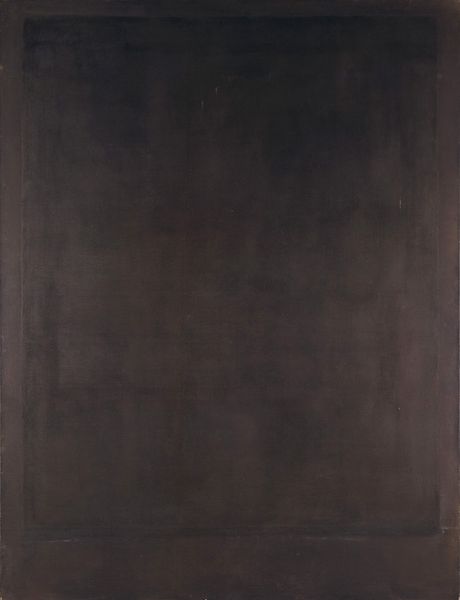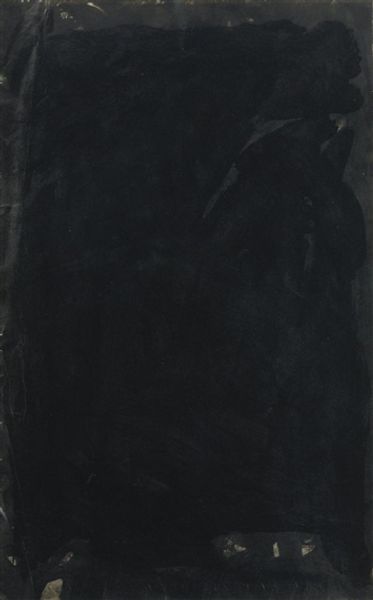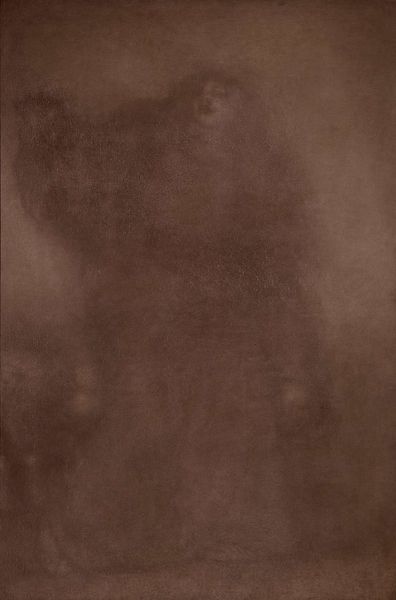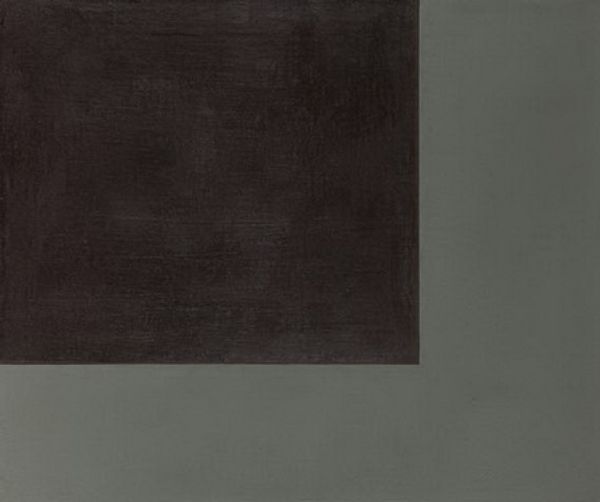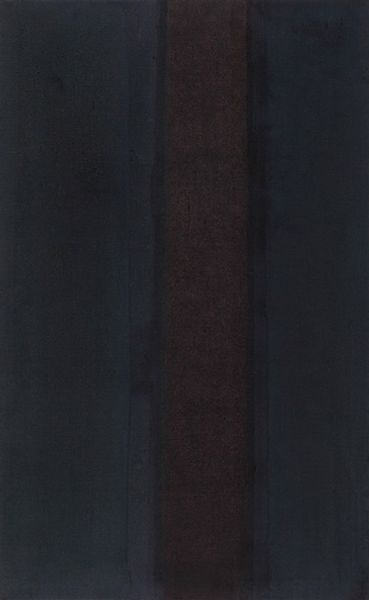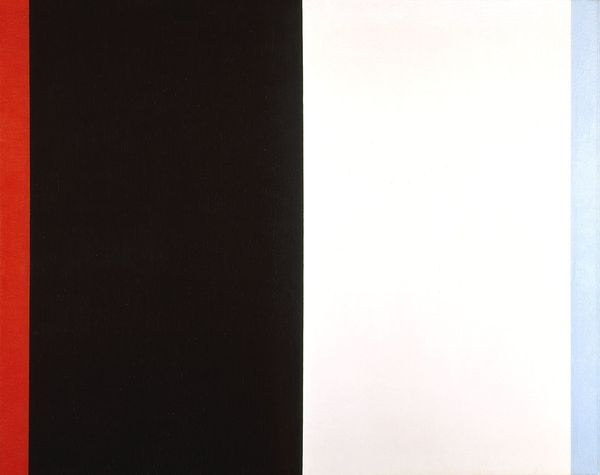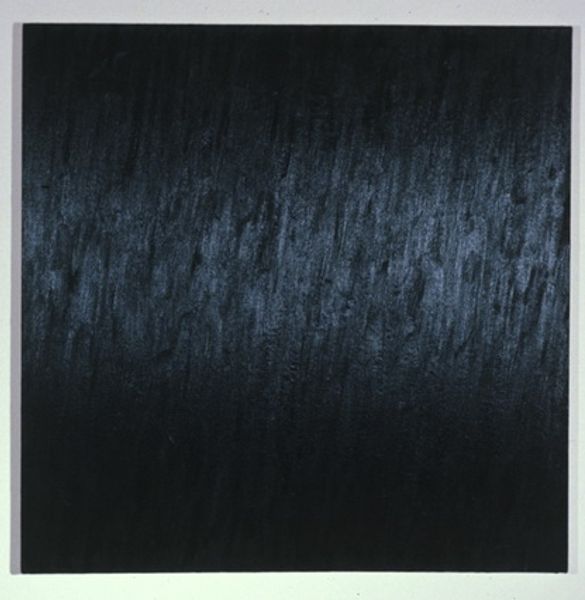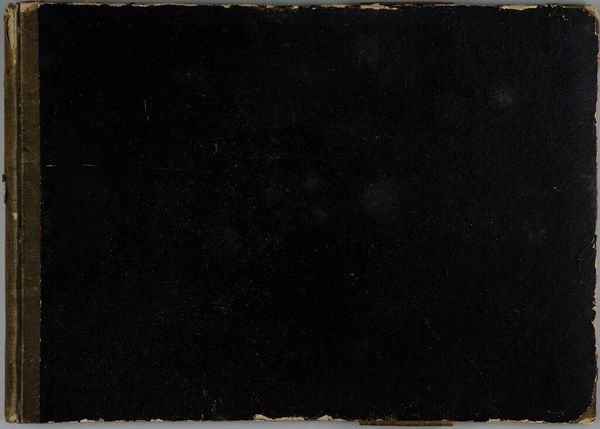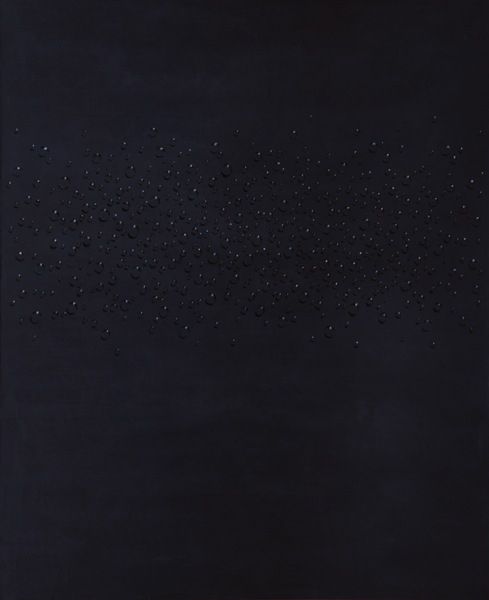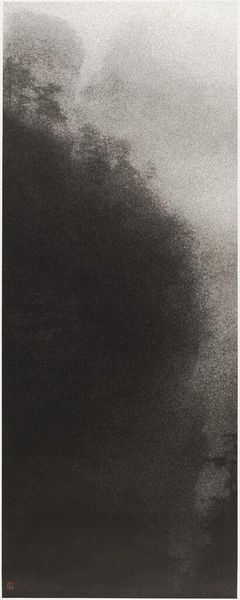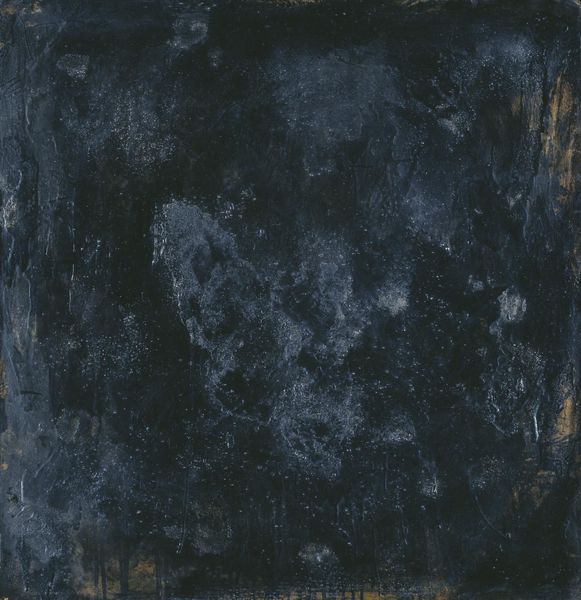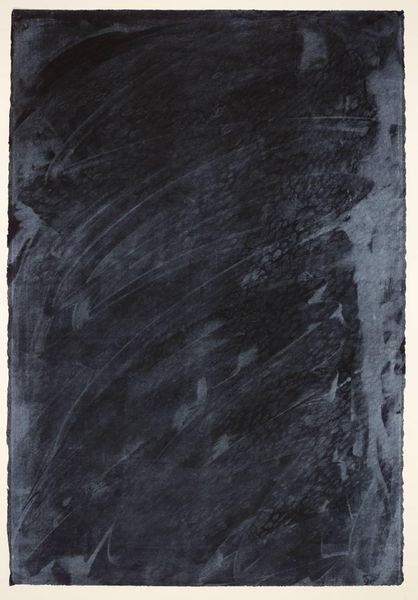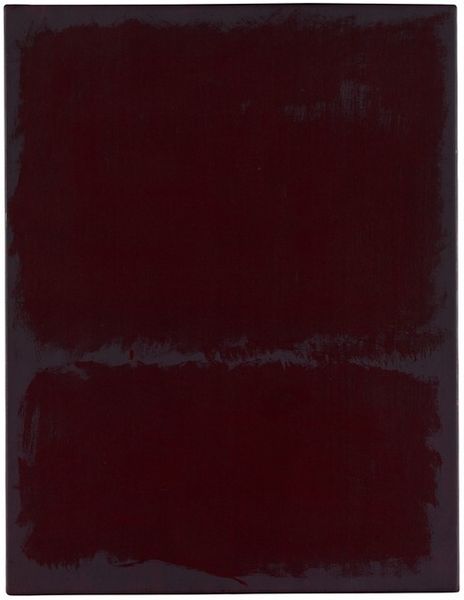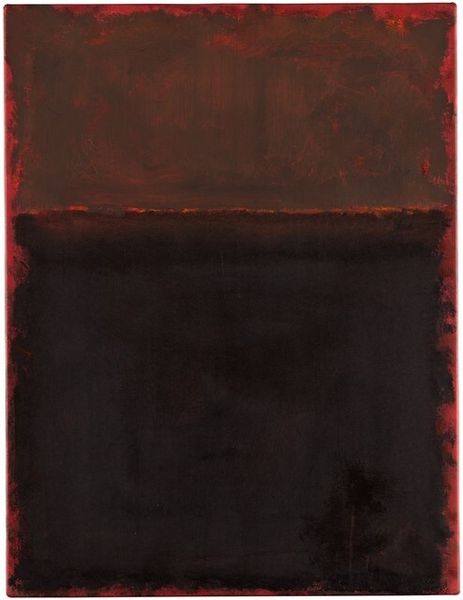
acrylic-paint
#
portrait
#
contemporary
#
conceptual-art
#
acrylic-paint
#
abstraction
#
charcoal
Copyright: Kerry James Marshall,Fair Use
Curator: Kerry James Marshall's “Invisible Man,” dating from 1986. It’s acrylic on canvas, and, well, striking might be an understatement. What hits you first? Editor: Menace, I think. And a strange sense of fun, bubbling just beneath the surface of all that darkness. It’s essentially a black canvas, with a set of eyes and a grinning mouth floating near the top. Curator: The darkness is the point, really. Marshall is playing with invisibility, not as a superpower, but as a social condition, a deliberate erasure of Black identity. The smile is unsettling. Editor: Those stark white features against the abyss feel like echoes from minstrel shows and blackface caricatures. Is he reclaiming that imagery? Twisting it? Curator: Both, I reckon. Blackface used exaggeration as a weapon. Marshall flips it, reduces identity to its most basic elements – the wide grin, the whites of the eyes. It becomes a ghost, haunting the present. There are actually some forms below. Vague indications. Editor: I see that now, just barely. It suggests a body struggling to emerge or perhaps being swallowed. That duality is powerful. Is he suggesting that even in invisibility, there's a presence? Curator: Precisely. A refusal to be completely erased. Think about the history behind those images. Black Americans have shaped this nation's culture, music, language – all while fighting for recognition, for basic rights. They may be rendered "invisible," but they leave their mark. Editor: The painting becomes a chilling commentary on cultural appropriation, where elements of Black culture are taken and profited from, while Black individuals themselves remain unseen, unheard. The piece holds history and psychology so intricately. Curator: Absolutely. Marshall packs a lot into that void, doesn't he? He offers us an image, challenging the gaze, pushing us to confront the systems that perpetuate invisibility. This artwork makes me question how deeply I look at anyone or anything. What remains unseen? Editor: It has a disturbing, evocative power, this void. Marshall manages to transform absence into a haunting presence. I shall carry this with me!
Comments
Join the conversation
Join millions of artists and users on Artera today and experience the ultimate creative platform.
otakujacob 8 months ago
⋮
The last thing i saw was the face and it hits you
artsycat 9 months ago
⋮
Looks like my dad lol
boa_781 12 months ago
⋮
Creepy 😭
